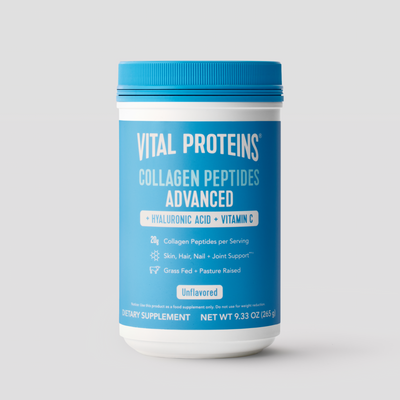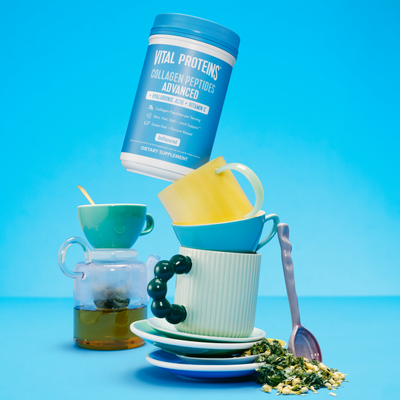Skincare can be tricky, and though everyone has different skin types, we all have the same skincare questions for the experts.
Do I really need to wear sunscreen inside? Is eye cream necessary? How can I make my skin glow like my favorite celeb?
Chances are if a question is skincare-related, dermatologists have heard it. But with the global pandemic and health and safety precautions in place, it's harder to stop into your dermatologist's office — meaning a lot of skincare quandaries have been piling up. Thankfully, we have a solution: enlisting three dermatologists to share their answers to the questions they hear most.
Just consider this a house call.
What should I look for in a moisturizer?
Even for skincare newbies, this is an essential step. It's important to find the right moisturizer for you. But it's not one-size-fits-all. There are many options to choose from, so it can be a daunting task.
According to N.Y.C.-based dermatologist, Hadley King, M.D., you can simplify that search by looking for moisturizers that contain these three components: humectants, emollients and occlusives. If you have no idea what those are, you're not alone.
Humectants are "mostly low molecular weight substances that bind water into the stratum corneum. They need to be used along with the other components in order to retain the water content," says King. Common humectants you'll see on a skincare label include hyaluronic acid and glycerine.
Next up: emollients. These are "saturated and unsaturated variable-length hydrocarbons that help in skin barrier function, membrane fluidity and cell signaling leading to an overall improvement in skin texture and appearance," King tells Lively. It sounds complicated, but you've probably heard of it. Common emollients include cholesterol, squalene, fatty acids, fatty alcohols and ceramides.
Finally, the third moisturizing component is occlusives. These are oils and waxes, which form an inert layer on the skin and physically block transepidermal water loss. You'll recognize petrolatum, beeswax, mineral oil, silicones, lanolin and zinc oxide as examples of occlusives, King says.
Can I pop my pimples?
As satisfying as it can be, it's not a derm-recommended practice. According to Zeichner, the risks of popping your pimples outweigh any positives.
When done properly (ideally by a skin professional), Zeichner says extractions can remove blockages within your pores. But if done wrong, disaster can strike. "More often than not, people end up over-picking, traumatizing the skin and increasing the likelihood of scabs, infections or even scars," Zeichner says.
Keep up a vibrant routine with Vital Proteins® Glow Collagen Shot™($45; shop now). The delicious strawberry lemon elixir contains 7g of collagen peptides, 60mg of skin-loving hyaluronic acid, vitamin C and biotin for a quick beauty boost.**

Do I have to wear sunscreen on cloudy days?
When it comes to sun protection, one of the most common misconceptions is that you only need to layer it on before you head out the door on a sunny day. Turns out, the opposite is true on both accounts: Sunscreen should be applied even when indoors and SPF protection is always necessary — rain or shine.
"Whenever it is daytime and the sun is out, you need to protect your skin, even if you can't actually see the sun," explains N.Y.C.- based dermatologist, Joshua Zeichner, M.D. "UV light penetrates through the clouds, which means that you can get a sunburn even on a sunny day."
What SPF should I use and how should I apply it?
You already know it's important to slather on SPF to protect your skin, but how do you choose the right kind of SPF and what is the best way to apply it?
You need to choose the right SPF and make sure you apply enough. King recommends using a sunscreen that is SPF 30 or higher. Most adults need to apply 1 oz. (about enough to fill a shot glass), to properly cover their body, according to the American Academy of Dermatology Association.
King also suggests applying a nickel-sized dollop to the face. "Commonly missed areas of application include the hairline, the part, the neck, the tops of the ears, the backs of the hands and the tops of the feet, and the bottoms of the feet if you're in a position where they will be exposed to the sun," King says. Reapplication isn't just for post-swimming (although you should do that, too). You'll need to reapply every two hours to maintain sun protection.
Related Articles
I have a serious case of maskne (mask acne), but I can’t get in to see my dermatologist. What can I do to help treat my blemishes at home?
With the current coronavirus pandemic are health precautions, such as mask mandates. And wearing cloth masks for extended periods of time have many people complaining of "maskne" popping up on their jawline. These health precautions also may leave you unable to see your dermatologist easily. This is where establishing a solid at-home skincare routine comes in. Christine C. Kim, M.D., board-certified dermatologist, says choosing the right kind of mask is key when it comes to cutting down on skin irritation that may contribute to pesky maskne. She suggests a mask made of natural materials such as cotton, bamboo or silk.
You also need to properly clean your masks. You'll want to wash them after every use in a fragrance-free detergent and let them hang dry, she says. Tweaks to your skincare routine are also necessary — try minimizing heavy moisturizers and makeup underneath your mask.
For an at-home blemish fix, Kim recommends Yes To's Detoxifying Zit Zapping Dots: "Formulated with salicylic acid, charcoal, and antioxidant tomato extract, these dots provide a concentrated blemish treatment with no needles."
We also recommend discussing any skin issues with your licensed healthcare professional. They can best provide you with the diagnosis and treatment of any medical condition and assist you as well in deciding whether a dietary supplement will be a helpful addition to your regimen.















